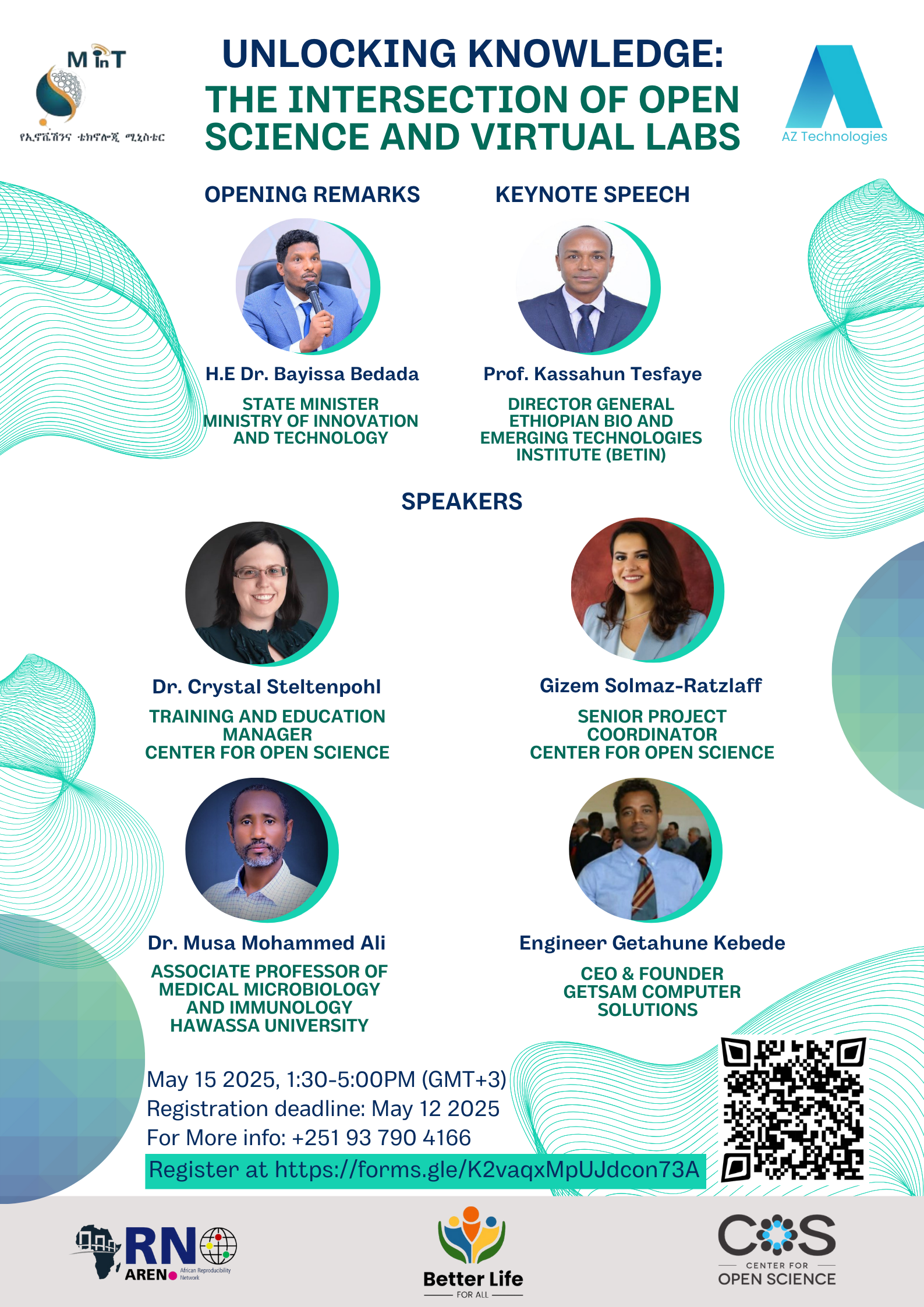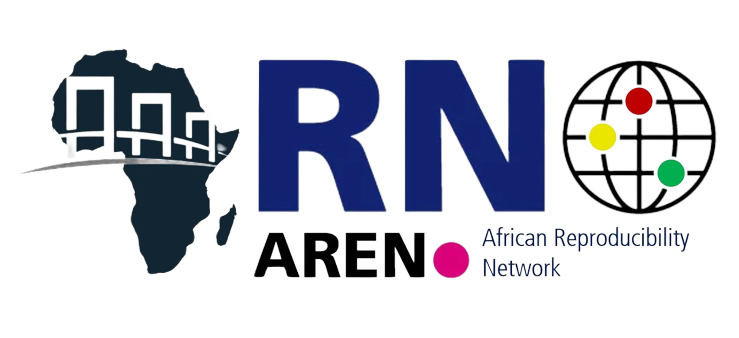AREN Eastern Africa Regional Coordinator Highlights Ethiopia’s Open Science Journey at National Training Event
On May 9, 2025, Dr. Musa Mohammed Ali, Eastern Africa Regional Coordinator of the African Reproducibility Network (AREN), delivered a compelling presentation on “The Growth and Challenges of Open Science in Ethiopia.” His talk was part of a national online training event organised by the Ministry of Innovation and Technology of Ethiopia in collaboration with partners including AREN and the Center for Open Science. Themed “Unlocking Knowledge: The Intersection of Open Science and Virtual Labs,” the event brought together researchers, educators, and policymakers to reflect on the opportunities and challenges of advancing Open Science and digital platforms in Ethiopia.
In his presentation, Dr. Musa provided an overview of the growing Open Science movement in Ethiopia, celebrating the progress achieved while acknowledging the obstacles that remain. He began by introducing AREN and its mission to strengthen research culture across the continent. Today, AREN connects more than 400 members across 32 African countries, representing over 150 higher education institutions and 19 partner organisations. Through its community of researchers, faculty, postgraduate students, and trained local network leads, including those based in Ethiopia, the network is actively promoting open and reproducible research practices in diverse contexts.

Your Heading
Dr. Musa highlighted several promising developments in Ethiopia’s Open Science journey. Increasingly, universities and research institutions are adopting Open Access Repositories, ensuring that scholarly work is freely available and accessible. This growing culture of openness is further strengthened by the launch of the Ethiopian Online Journal System, a platform designed to enhance the visibility and reach of local scientific publications. Open Educational Resources are also gaining ground, transforming how teaching and learning materials are created and shared, and widening access to knowledge across educational levels.
Crucially, the nation's Digital Ethiopia 2025 plan is poised to be one of the most compelling drivers for the future of Open Science in the country. This strategy envisions significant investments in digital infrastructure and aims to accelerate the integration of Open Science into research, education, and innovation systems. By aligning Ethiopia with global shifts toward openness, the plan has the potential to boost research visibility, encourage collaboration, and position the country as a regional leader in the global Open Science movement.
While this progress is commendable, Dr. Musa was candid about the obstacles that remain, addressing several key barriers, including limited funding, a persistent lack of technical infrastructure, insufficient awareness, and the need for stronger policy frameworks. Despite these hurdles, he expressed optimism, arguing that these challenges can be overcome through collaborative efforts, strategic investments in technology and education, and deep community engagement. A major highlight of the presentation was the introduction of the Open Science Initiative Ethiopia, a new project designed to promote Open Science ideas and practices nationwide. Already endorsed by the School of Medical Laboratory Science at Hawassa University’s College of Medicine and Health Sciences, the initiative aims to encourage teamwork, facilitate resource sharing, and build an inclusive space where researchers, scientists, and students can fully integrate into the global Open Science movement.
The national training event ultimately offered valuable insights into the dynamic growth of Open Science in Ethiopia, showcasing both the difficulties and the creative solutions being developed. Musa’s talk in particular highlighted how a mix of national strategies, institutional reforms, and grassroots initiatives are laying the foundation for a more open and equitable research culture. As Ethiopia continues to strengthen its digital systems and embrace openness, it is clear that the country has the potential to play an influential role in shaping the future of science and education both locally and globally. With sustained support from local and international partners, AREN's Local Network Leads and initiatives like the Open Science Initiative Ethiopia are well-positioned to play a substantial role in shaping the future of science and education in the country

